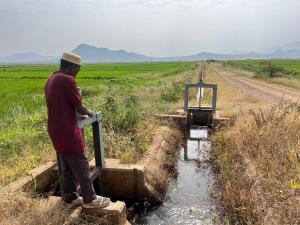Test project Pesticides and Protection Tanzania
testing out building a project
Conflictual Collaboration: Citizen Science and the Governance of Radioactive Contamination after the Fukushima Nuclear Disaster
In the aftermath of the 2011 Fukushima nuclear disaster, citizen scientists collectively tracked and monitored residual radioactivity in Japan, legitimizing alternative views to an official assessm
Radioactive Performances: Teaching about Radiation after the Fukushima Nuclear Disaster
Following the 2011 Fukushima nuclear disaster and its release of radioac- tive contamination, the Japanese state put into motion risk communica- tion strategies to explain the danger of radiation e
pece_annotation_1473009337
Sara_NesheiwatThe study addresses vulnerable populations by initially focusing on youths that were in the vicinity of the Fukushima disaster at the time of the event. These subjects are vulnerable due to their proximity to the nuclear disaster, but also due to their age and the fact that they are still developing, causing them to be at more risk.
pece_annotation_1479081076
Sara_NesheiwatThis was an excerpt from a book entitled "Medicine, rationality, and experience" by Byron J. Good. This book has been cited in 16 different papers and works. Many of the works it has been cited in include anthropology of the Middle East, global health, Nurse and lay community members and other topics associated with anthropology and cultural communication.
pece_annotation_1473575914
Sara_NesheiwatThe American Red Cross is a nonprofit, tax-exempt, charitable organization. The American Red Cross isn't a federal agency, so they do not receive regular federal funding to carry out their services. They get their money from public voluntary contributions and from cost-recovery charges they have for their services, such as health and safety training courses they offer. There are times though that the federal government contracts with the American Red Cross and provides material and aid assistance to support the Red Cross at times.
pece_annotation_1480144596
Sara_NesheiwatThis policy greatly helped sculpt emergency medicine and public health. By giving the right to the patient to have emergency medical treatment required without proof of insurance or payment, astronomically influenced the amount of patients being turned away and their possibilty of developing worse illnesses or dying. In a paper I read, a young doctor in the late 70s and early 80s remembers watching a woman in labor give birth in the doorway of the hospital and proceed to borht her child in the parking lot after being turned away for not having insurance. By requiring hospitals and doctors to see that all ED patients get care, no patient was at risk of dying or complicating their baby's health and birth due to a lack of insurance, ultimately increasing public health efforts. Not all hospitals turned away their patients, but enough did to make it a public health concern and get Congress involved. EMTALA changed emergency medicine protocols but also public health expectations and actions.
http://www.hhnmag.com/articles/5010-the-law-that-changed-everything-and…




the rice irrigation scheme, Pare Valley, Tanzania